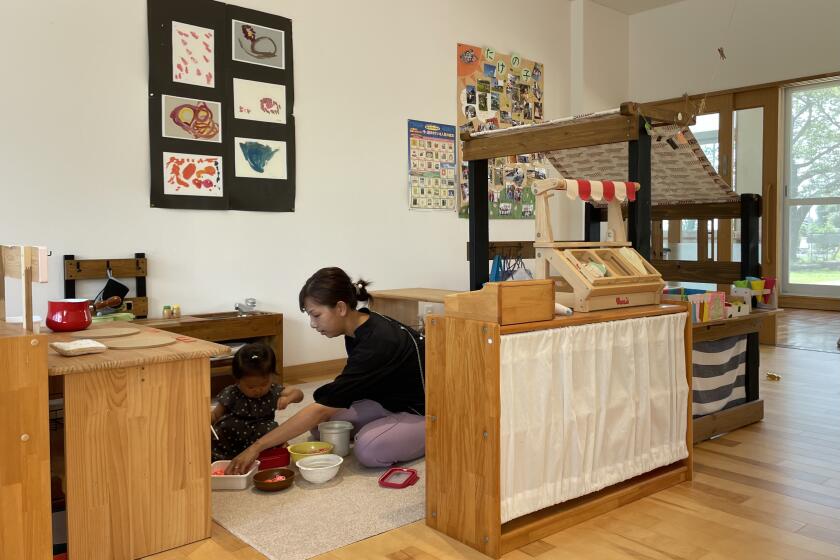
- Share via
TAIPEI, Taiwan — Shorthand for gainfully employed U.S. couples whose only responsibilities were to themselves, the acronym DINK — dual income, no kids — was coined to capture the unabashed materialism of the 1980s.
Four decades later, the term has made a comeback, with millennials embracing it on social media to flaunt their free time, lavish spending habits and the other perks of choosing to be child-free.
It has taken off far beyond United States, including in one country where it would have been hard to imagine just a decade ago: China.
China infamously once limited couples to one child each to control population growth. That led to a shortage of young people, and in 2016 the government upped the limit to two children. In 2021, it became three.
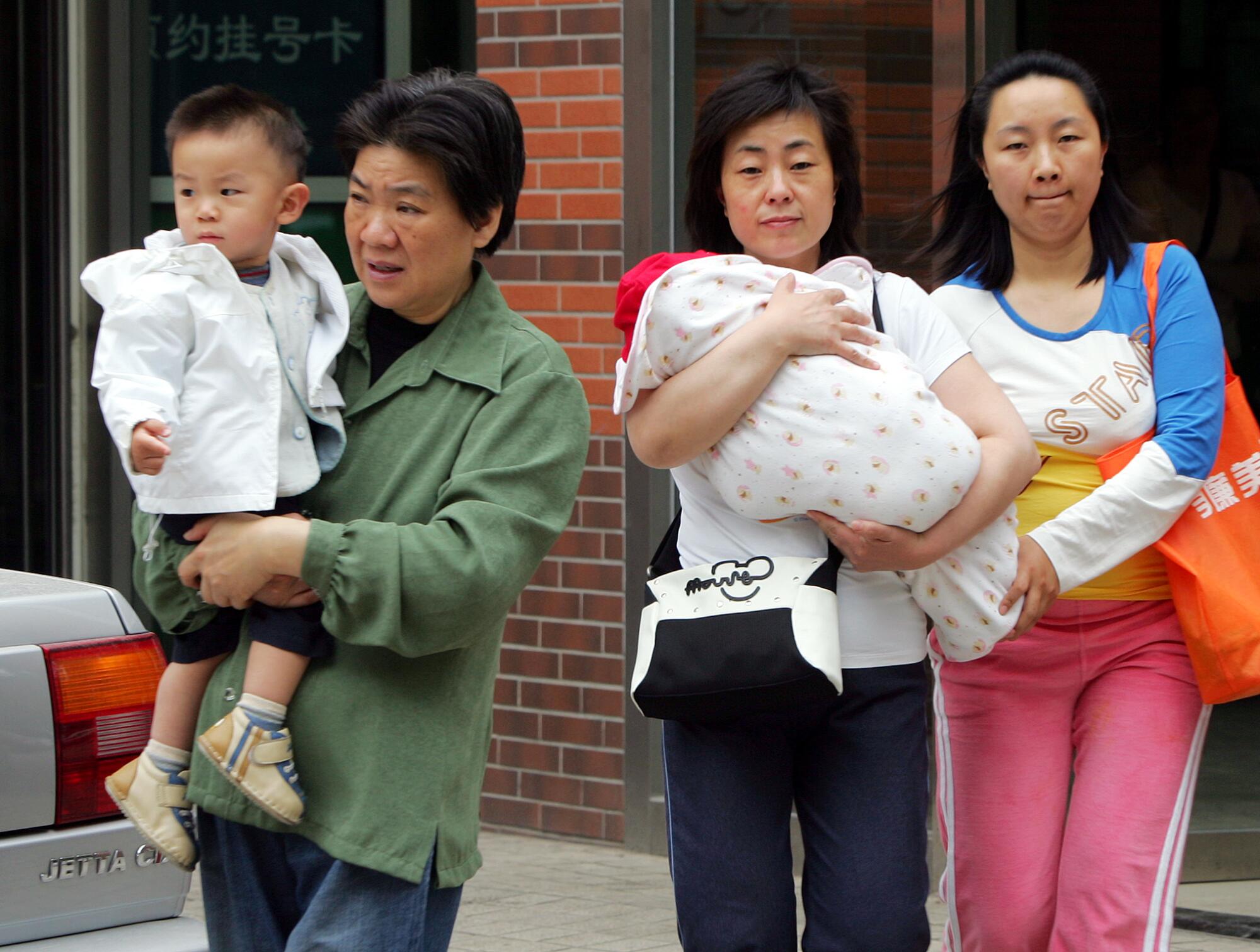
Amid deep economic uncertainty, a growing number of Chinese are opting for another number: zero.
Many proudly refer to themselves as DINKs — using the acronym in English — or dingke, the phonetic translation in Mandarin.
Xu Kaikai, 29, said being DINKs gives her and her 36-year-old boyfriend a greater sense of control over their lives.
Birth rates have been trending downward in the U.S. for several decades and dropped precipitously during the pandemic. A key reason is the high cost of raising kids.
“It reduces some of the anxieties about age,” she said.
She works in advertising in Shanghai, where her boyfriend is a project manager for a construction company. “I used to talk about having a beautiful baby,” Xu said.
Now she calls herself a “drifting leaf” and gets so bored with people talking about children on social media that she follows only people without them.
A recent study from the Luoyang Institute of Science and Technology estimated that DINKs accounted for about 38% of Chinese households in 2020 — up from 28% a decade earlier — but those figures included large numbers of people living alone and the research did not look at whether couples were in fact dual-income.
Not that all Chinese adhere to a strict definition of the acronym. Some include anybody without children, while others don’t count people who still have a chance to change their minds — women of child-bearing age or men without vasectomies.
It’s also unclear how many DINKs there are in the United States. Some 44% of couples ages 18 to 49 surveyed by Pew Research in 2021 said it was unlikely they would have children — up from 37% in 2018.
The term DINK isn’t entirely new in China, but previously it was usually intended to indicate couples who wanted children but could not — not the childless-by-choice ethos couples are embracing today.
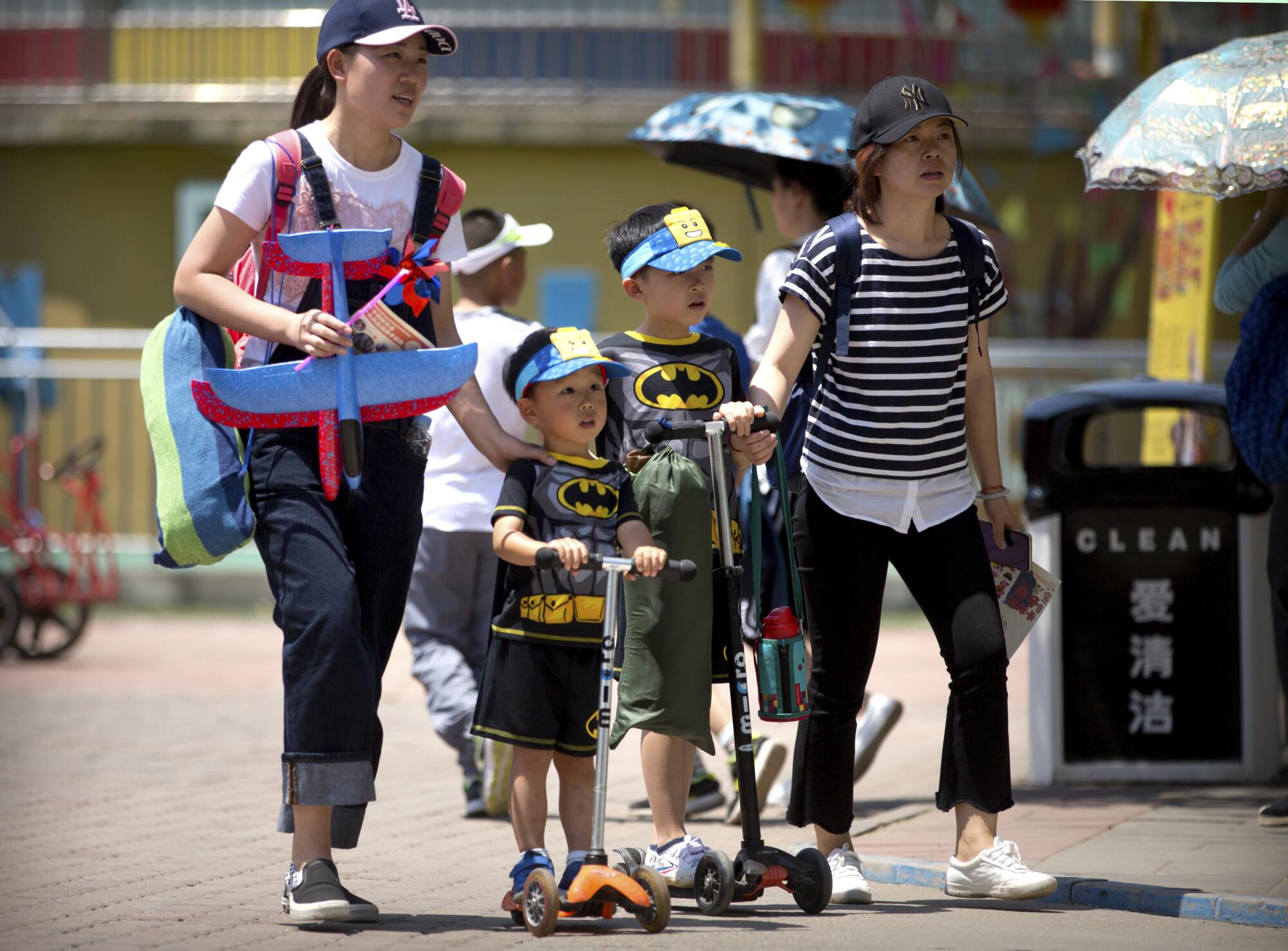
“It was just a high-class phenomenon,” said Yuying Tong, a professor of sociology at the Chinese University of Hong Kong who studies family life.
She said the number of DINKs is going up in large part because more people are delaying marriage.
The rejection of societal norms comes at an inopportune time for the Communist Party, which is struggling to stave off a demographic crisis in which there aren’t enough young people to support the elderly.
The country’s population declined for the second year in a row in 2023 — India surpassed it as the world’s most populous nation — and the birthrate fell 5.6% to a record low of 6.39 births per 1,000 people — a little more than half the U.S. rate, which has also declined in recent years.
Now the Chinese government is trying to motivate people to have kids, resorting to subsidies and even matchmaking services.
Filmmakers examine China’s restrictive past and to come realize there were victims on both sides of its cruel one-child policy.
In March, Chinese officials announced plans to provide more support for child rearing and “work toward a birth-friendly society,” including improving parental leave policies and child-care options.
The government also appears to be trying to scare DINKs into changing their mindset.
Last month, China’s Twitter-like platform Weibo promoted an article about DINK couples in China who regretted not having kids because it had led to loneliness, marital strife or inheritance issues.
“Being a DINK is a gamble on the future,” said the post, which had no byline but got more than 8 million views. “It’s a bet on whether you can stick to your original intention, on whether partners can trust each other, and more importantly on the complex changes of human nature.”
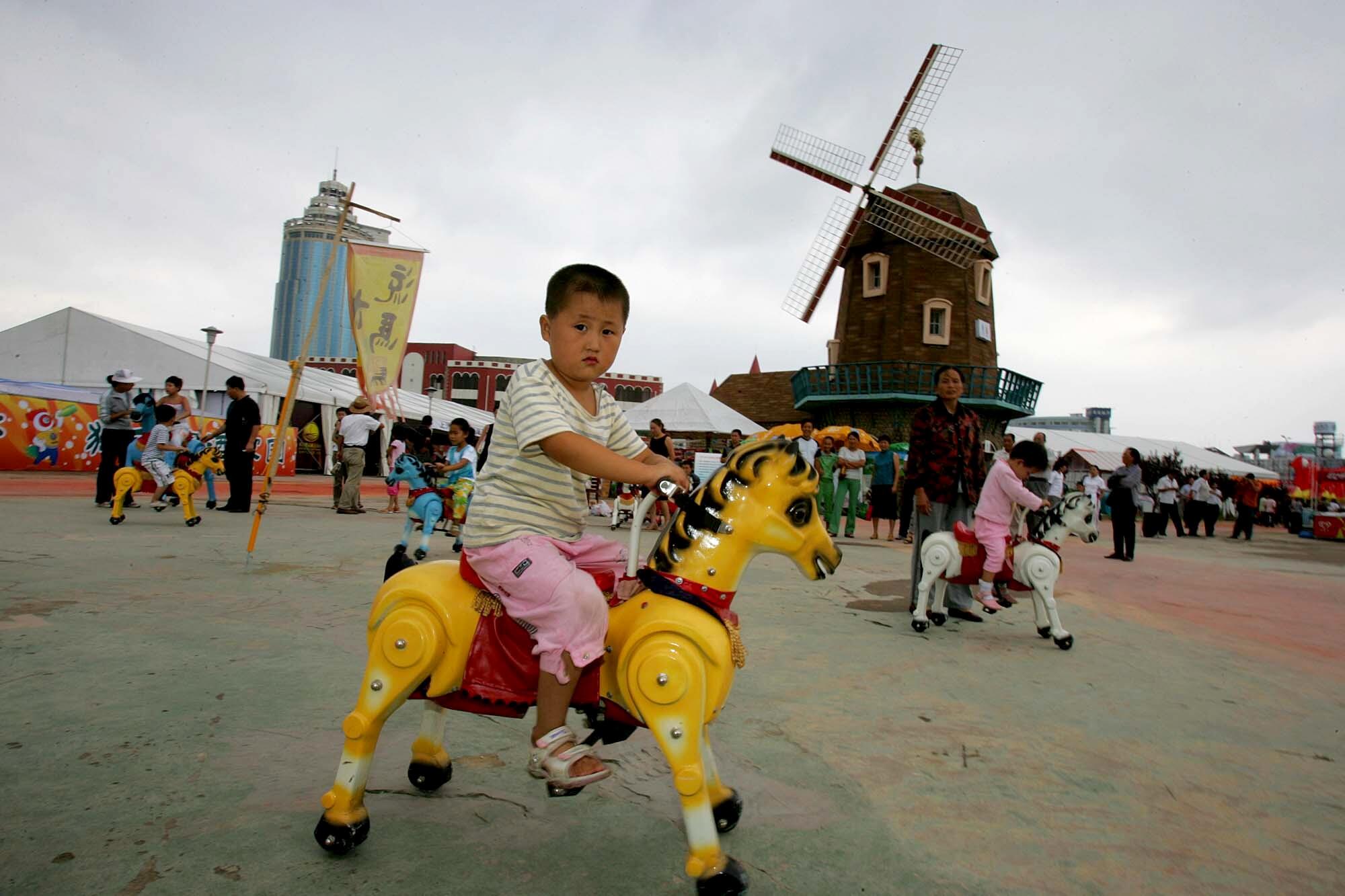
DINKs took issue with the characterization.
“Are all these examples being brought up to encourage people to have kids?” a popular entertainment blogger who goes by the moniker Jing Zhao Cha Mi responded on social media. “There are probably more people who regret their lifestyle with children.”
Hu Huiwen, a 38-year-old financial consultant who lives in the eastern city of Hangzhou, has heard all the warnings: Her husband will leave her. She will want children later and be too old to have them. Nobody will care for her in her old age.
But in the five years since she swore off having children, none of that has come to pass.
“It might become a minor sorrow, but not to the point of regret,” Hu said. “Even if I do regret it, then I can only bear it myself. What else can you do?”
She belongs to three different group chats for DINKs, where participants advise one another how to spend their leisure time. In video diaries, she shows herself reading or wandering through parks admiring the foliage.
Such advertisements for child-free life don’t make the government campaign for having children any easier. Neither does the stalling economy.
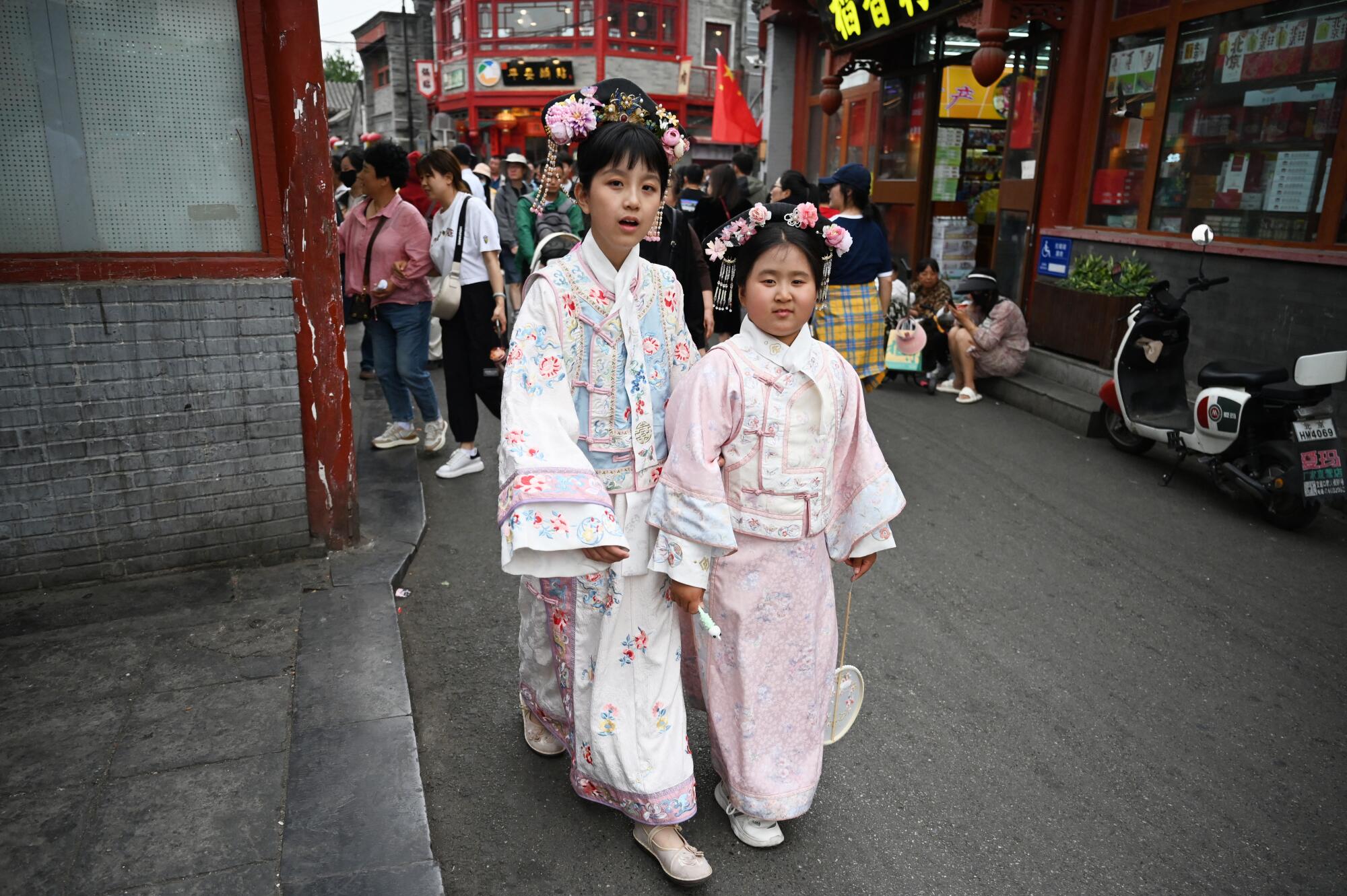
A recent study by the Beijing-based Yuwa Population Research Institute found that the average cost of raising a child in China was $74,600 — or 6.3 times the per capita GDP.
Of the 14 countries included in the study, the only place where it cost more relative to income was South Korea, which has the lowest birthrate in the world.
“At the end of the day, it’s still about the pressures and this very competitive environment that makes both marriage and childbearing untenable,” said Mu Zheng, an assistant professor of sociology at the National University of Singapore.
As South Korea hits the world’s lowest birth rate, a rural elementary school struggles to stay open amid a nationwide drop-off in school-age children.
When Zheng Yu, a 47-year-old fashion consultant living in Shanghai, was in her 20s, her friends and family viewed her decision to not have children as a symptom of her rebellious nature.
Now with income inequality rising and seeing the pressure her niece is under to excel, she said she and her husband would make the same decision all over again.
“Only by not having children can I live the way I do now,” said Zheng, who has visited more than 50 countries. “I only have to think about myself, which is the part I enjoy most.”
“Considering global political and economic trends, if you don’t have a strong maternal instinct, you shouldn’t have a child just for the sake of it,” she said.
Japan is confronting a depopulation crisis because of a precipitously falling birth rate, but one mountain town has bucked the trend — spectacularly.
Vable Liu, a 29-year-old English teacher in Jinan, the capital of China’s Shandong province, said about a third of her friends are DINKs.
Liu and her husband recently posted a short video defending their choice.
“Will DINKs miss out on the joy of children?” she asks him in the clip.
They answer together: “Are people with children surely happy? People with children aren’t necessarily happy, maybe they’ll miss out on the joy of being DINKs.”
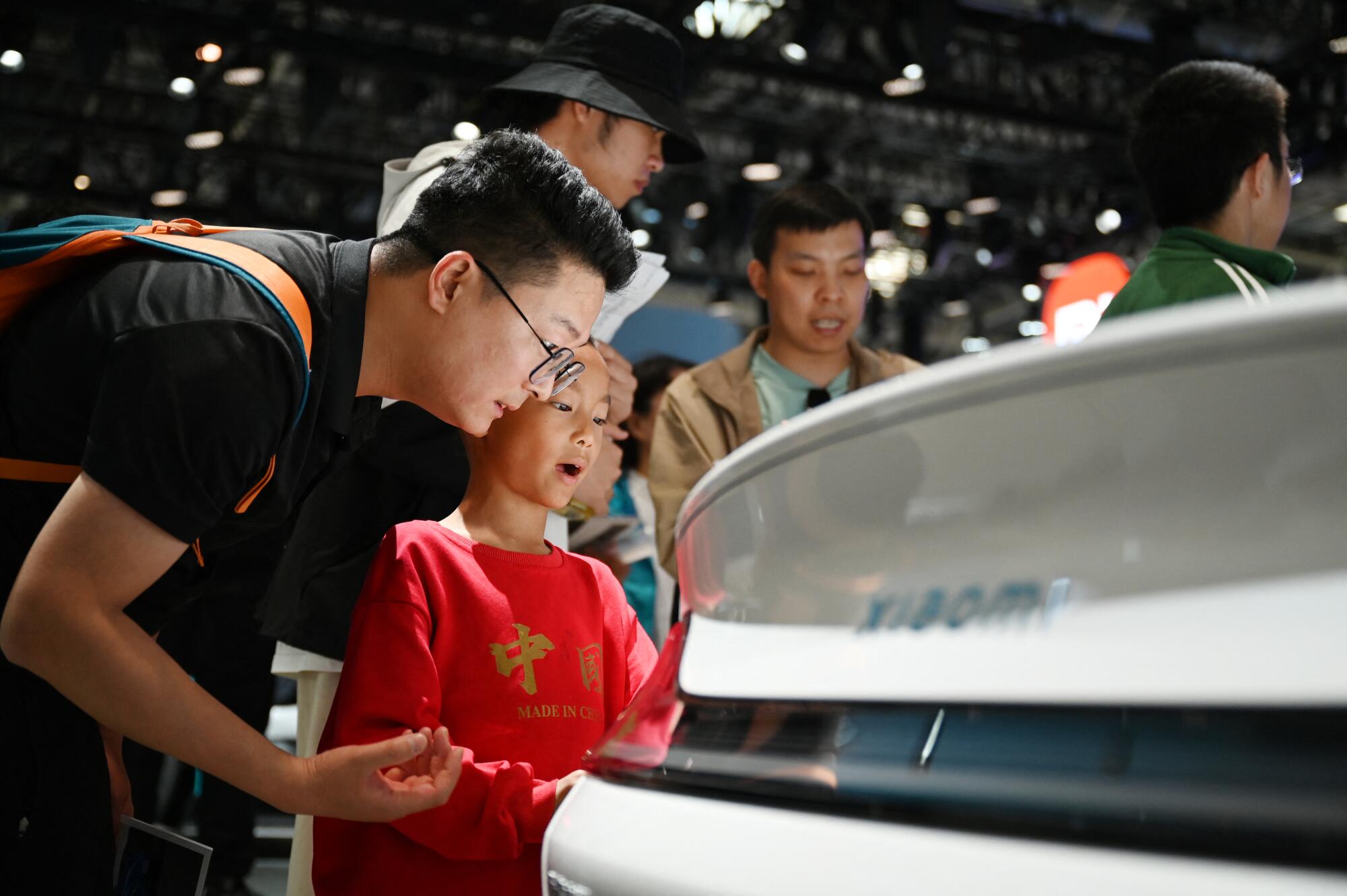
They continued with their mock interview.
“What if your family pressures you?” “Stay away from them.”
“Who do you pass your wealth on to when you die?” “Squander it all before then.”
Special correspondent Xin-yun Wu in Taipei contributed to this report.
More to Read
Sign up for Essential California
The most important California stories and recommendations in your inbox every morning.
You may occasionally receive promotional content from the Los Angeles Times.


